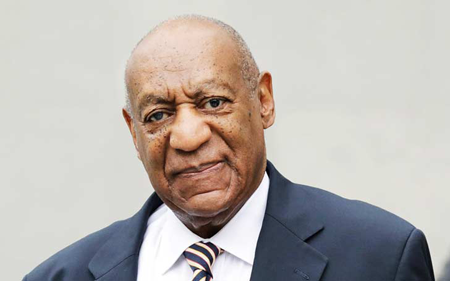
By Stacy M. Brown,
NNPA Newswire Contributor,

Much has gone unreported about the Bill Cosby trial and what many perceive as an overwhelmingly suspect set of charges filed against him, resulting in a hearing that many experts cite as an affront to ethics laws. The fairness of the proceedings is further called into question based upon the arguably questionable ethics and out of court statements made during the campaign of then-candidate, and now-District Attorney, Kevin Steele, whose campaign promised to “Get Cosby.”
Cosby, who finally lashed out at Steele after the verdicts in April, has maintained his composure in the face of what appears to be an easily-appealable jury decision.
When the comedian initially was ordered to stand trial in 2017, National Newspaper Publishers Association (NNPA) President and CEO Benjamin F. Chavis Jr., said it was important for the Black Press to cover the trial and to remain impartial and balanced.
Just two years prior to the start of the trial, Cosby himself told the NNPA Newswire that he too wanted fairness – and the icon was clear that he wasn’t seeking any favors. “Let me say this: I only expect the black media to uphold the standards of excellence in journalism and when you do that you have to go in with a neutral mind,” Cosby said.
It’s been an uphill battle for the icon, particularly after a jury found him guilty of three counts of aggravated indecent assault in April, just months after another jury failed to deliver a verdict, reportedly divided either 10-2 or 7-5 in favor of acquittal.
Cosby’s sentencing phase is set to begin Monday in the same courthouse in Montgomery County, Pennsylvania where the trial took place. Sentencing will be carried out by the presiding judge, Judge Steven T. O’Neill.
Despite clear conflicts of interest, O’Neill has repeatedly refused to recuse himself and is seen by many as conspiring with the prosecutor to convict the comedian.
As for coverage of the trial by the Black press, Chavis’ earlier edict, which is supported by NNPA National Chairman Dorothy R. Leavell, has been strongly maintained through objective reporting and editing.
Through the reporting of the Black Press, jury nullification was exposed.
In Pittsburgh, prior to the first trial, Cosby attorney Brian McMonagle first raised the issue of unfairness when prosecutor Kevin Steele and his assistants openly declined African Americans for the jury. They even investigated potential black jurors.
Jurors cannot not be excluded on the basis of race or gender, and McMonagle said that prosecutors had used challenges to remove two black women while accepting white jurors who gave similar answers to questions.
The potential juror, an African-American woman who had retired from the police force, appeared ripe for selection until Steele objected. He contended that his investigation found that the woman had been fired from her job with the police force for falsifying records.
However, that was just a small part of her story.
Steele knew at the time, but failed to disclose, that the officer had contested the charges against her with the department and won. She was accused of punching another officer’s timecard, was found innocent of the charges and sued the department, receiving a large settlement and retired without a blemish on her record.
“We believe it is of paramount importance we seat a diverse jury,” McMonagle said.
Rev. Jesse Jackson also expressed reservations. “The jury may determine the outcome even before coming to court,” Jackson said at the time. “Our history includes the killers of Emmett Till and Medgar Evers; a jury set those killers free. There’s a court bias and African-Americans don’t have access to the jury pool [like whites],” Jackson said.
During jury selection in Cosby’s first trial, prosecutors nixed potential black jurors without cause and Judge Steven T. O’Neill allowed a white juror to be seated despite his proclaiming, “Cosby is guilty, we can all go home.”
The comment was heard by others, including many who gave sworn testimony to the fact, but O’Neill ignored them.
Additionally, two assistant district attorneys made racially-insensitive remarks during jury selection, which O’Neill also ignored, including Assistant District Attorney Kristen Feden who, after one black juror was seated and Cosby’s teams tried to select another African American, flippantly said, “You already got your one [black] juror, be happy.”
When the Black Press explained to Steele why that was offensive, the prosecutor simply said, “Thank you.”
After the verdicts in April, a juror told Good Morning America that it was the deposition that sealed the case against Cosby.
Throughout the trial, the Black Press called out the misrepresentations of mainstream media, many of whom conferred only with the District Attorney’s Spokeswoman, Kate Delano, prior to writing hit pieces against Cosby.
Many in the media repeatedly noted the absence of A-listers supporting Cosby at trial. Only the Black Press reported that it was Cosby himself that asked many of his famous friends and supporters to stay away from the courthouse because he didn’t want their careers impacted by the emerging and powerful #MeToo movement.
Supporters note that Cosby has always been available for causes affecting minorities. He has given more than $200 million in donations to HBCUs and has lent his impressive art collection to the Smithsonian museums. Cosby also has regularly sat on boards and anonymously provided assistance to Black Americans.
Cosby, who vigorously maintains his innocence and believes he’s kept his promise to Wyatt about walking through the valley of shame, faces as many as 30 years in prison when he’s sentenced.
“This is the sound and fury signifying the lynching of a legacy,” a courthouse source said.

Be the first to comment